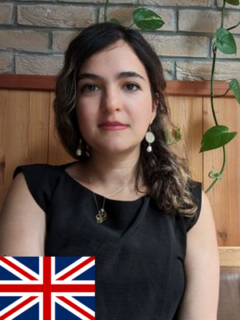Zarin Moghaddam
Zarin Moghaddam
Gastwissenschaftlerin (University of Surrey, UK)
Controlled release of cinnamon oil from phosphate-based glasses for wound healing promotion
Supervisor in Erlangen: Prof. Aldo R. Boccaccini
Supervisor in UK: Dr Daniela Carta
Phosphate-based glasses have great potential to be used in tissue engineering and as drug delivery systems. Being totally bioresorbable, they dissolve in the physiological environment being eventually totally replaced by the regenerated hard or soft tissue [1]. Simultaneously, they release therapeutic species in a controlled way (e.g., antibacterial metallic ions) and be loaded with biomolecules, i.e. essential oils). As a Turing placement PhD student from the Chemistry and Chemical Engineering Department at the University of Surrey, UK, this project investigates the effect of the controlled release of cinnamon oil from phosphate-based glasses in the system P2O5-CaO-Na2O and its effect on wound healing. Cinnamon oil is known to possess antibacterial, anti-inflammatory and antioxidant properties [2]. These properties facilitate the wound healing process by protecting the wound from oxidative damage and promoting tissue repair.
1. Kyffin, B.A., et al., Antibacterial silver-doped phosphate-based glasses prepared by coacervation. Journal of Materials Chemistry B, 2019. 7(48): p. 7744-7755.
2. Unalan, I., et al., Antibacterial and antioxidant activity of cinnamon essential oil-laden 45S5 bioactive glass/soy protein composite scaffolds for the treatment of bone infections and oxidative stress. Materials Science and Engineering: C, 2021. 128: p. 112320.

